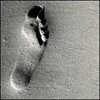Parrot in the Pepper Tree
C. Steward
Chris Stewart turns another leaf on his life in southern Spain in this evocative and very funny Sort Of sequel to his best-selling biography, Driving Over Lemons. It is fact part sequel - further (mis)adventures of Chris and his family in their remote Andalusian farm - and part prequel, looking back on Chris' previous lives, drumming with the teenage Genesis and in a circus, shearing sheep in midwinter Sweden and heading off to Spain to learn flamenco guitar. Though I like to think that my Spanish vocabulary has, by now, expanded to fit most of the needs of Alpujarran living, I have discovered that it is - well - full of snares. Animals, particularly, are a sea of uncertainty. Comadreja, garduńa, jineta, gato clavo, urón, are all names of creatures that exist in an area of uncertain identities, often distinguished only by the size of hole they can squeeze through to get at your poultry. I'm sure similar confusions exist with the English equivalent - stoats, weasels, martens, jennets, ferrets, and so on. Then, if you move one size or so down the ladder of threatening animals you arrive in the even more interesting linguistic territory of the bichos. Now, bicho is one of my favourite Spanish words. It should refer to creatures round about the insect size bracket - as in 'there are bichos in this bed and they are eating me alive' - but it can be expanded to encompass smallish non-insects, like rodents, and under exceptional circumstances its borders might even stretch to a cat or even a dog. With the licence that being a foreigner and having a wretchedly imperfect grasp of the language, permits me, I have even managed a cow and a horse, though I've had to use the augmentative noun, bicharaco, for this. The suffix -aco makes a thing bigger and more formidable, as in 'Vaya Bicharaco!' or 'Blimey what a creature!' Yet these are all minor linguistic inconveniences, compared to the minefield of the written letter or note. If you live your whole life in the country you are born in, you are unlikely to be greatly taxed by the problem of writing notes to school bus drivers. Of course you may have to do it, but you will probably be able to dash it off without a moment's thought: To Whom it May Concern: My daughter, Chloe, will not be returning with the school bus this afternoon as she will be engaged in after-school activities in town. Thank you for your co-operation. Yours sincerely, Christopher Stewart (father). I imagine they go something like that, dashed off in haste, though I'm not altogether sure as I've never had to do one in English. Here in Andalucia, it's very different. 'Chris, can you write a note for the school bus driver?' Ana asked one day. It was not an unfamiliar request. 'Why dear?' I answered, stalling as usual. 'Because Chloe is staying after school tomorrow with Alba-Teresa and Laura-Maria.' 'Can't we just tell the driver?' 'No, we really have to do it properly. You must remember what happened before?' Ana was referring to an occasion on which we were blamed for keeping six children incarcerated on a bus on a sweltering afternoon, all because we had failed to pass on a note saying that Chloe was staying behind for a dance class. The fact that Ana had already alerted the bus driver to this on two separate occasions was of no account. Poor Chloe had to suffer a week of frosty looks and comments from the assembled parents before the spotlight fell onto some other poor noteless sap. So these days we always write to the school bus driver and to Mari-Carmen who is the loader and checker at the school end. 'Well, why can't you write the note then?' I countered. 'Because I'm busy and, besides, I thought you were supposed to be the writer in the family.' Ana's dig seemed a little below the belt but I resigned myself to the task and set to finding a suitable piece of paper to write the note on. The paper shouldn't be too big, as the sort of note I planned to write wouldn't occupy very much space, and a big piece of paper would draw attention to this. It shouldn't be too small either, as this would give an impression of impecuniousness or, worse, meanness - neither of which are the sort of impression you want to make on school bus drivers. Having unsuccessfully combed the house and all its outbuildings for the right sized piece of paper, I hit on the notion of cutting one to the exact dimensions required - creating a sort of bespoke bus driver's note page. The cutting, of course, had to be just so. I tried with our ancient pair of scissors, some knives, a ruler, folding and tearing. Eventually I achieved the perfect piece of paper, found my pen, and sat down to compose. I thought for a bit. Muy Pino mio, I wrote - 'Very Pine Mine.' This was a standard beginning but I didn't like it much; something didn't quite click, and besides I wasn't sure who was driving the bus that week. There were three potential drivers: Pino, Moya, or Jordi. It was too late to ask Chloe, who was fast asleep. I crossed out Muy Pino Mio - but no, that was no good, I couldn't have crossings out. I crumpled the paper and took up another sheet. This time I'd do it first in rough. A part of the problem is that Spanish letter writing has a tendency to be rather formal, and the writing of formal business Spanish seems to be mired in lunacy. I caught a whiff of business Spanish once in a book I was learning from, and just that brief exposure seems to have contaminated my style. Estimado seńor - 'Esteemed Sir' - I began again. It had a nice ring to it but was perhaps a bit heavy. It would have to go. I crossed it out and with a flourish wrote Querido amigo, 'Beloved Friend.' I considered this uncertainly for a while, doubting its literary merit. And that was another problem; people in town knew that I had had some success abroad as a writer, so the contents of this note might not just be between me and the addressee. There was the awful possibility that the note would be passed around all the bus drivers to be mulled over, criticised, admired or reviled. In my worst, most paranoid, imaginings I could see my note pinned to the public notice board in the Ayuntamiento, the Town Hall, as an example. I had to get this right. I thought hard about the note for some time with no success. Then I drank my share of a bottle of wine to see if I could find any inspiration there, but it only induced a desire to go to bed. Probably the inspiration would come during the night and I could just dash it off in the morning. Of course I spent the night rolling about in anguish, tormented by various combinations of address. 'Esteemed friend. Beloved Sir, Most Excellent Bus Driver... Very Bus Driver Mine...' Next morning I rose early to prepare Ana's morning cup of tea, get Chloe's breakfast, and do some more work on the note. Hola Jordi, I started. Chloe had told me that Jordi was on this week, and Jordi being younger and more modern than Pino or Moya, would more than likely be happy with a less formal approach. Hi Jordi, With this letter I inform you that my daughter Chloe will not be returning with the school bus this evening, but will be staying on in town. I wasn't wild about the construction but it would have to do given the approaching deadline. 'Will not be returning': that ought really to be in the subjunctive as it referred to an act contemplated in an uncertain future and was also referred to at one remove. That seemed like a good case for a subjunctive. But it would be such a bunfight dredging up the appropriate subjunctive that I decided to let it slide. Jordi wouldn't mind. But how to finish the note? It wasn't a business letter, and I knew Jordi pretty well, so it wouldn't be necessary to roll out all the ornate religious stuff about 'God Guarding the Recipient through Many Years' - a formal but surprisingly common sign-off in Spanish letters. This left the following options: sinceramente (sincerely), un saludo (a salute), un abrazo (a hug), un beso or besos (a kiss or kisses). This last I dismissed out of hand. I liked Jordi but not quite that much. Un saludo, Cristóbal. With a sigh of relief I hunted about for an envelope, then headed off to take Chloe to the school bus. I was pleased to discover that it was indeed being driven by Jordi. 'Morning Jordi, here's a note for you,' I announced. 'Oh yeah, what's it about?' 'It's just to tell you that Chloe isn't coming on the school bus this afternoon.' 'OK. I'll remember that.' 'Yes, but take the note.' 'But you've just told me. I don't need the note.' 'Go on, take the note.' 'No. What do I need a note for?' 'It's the proper way to do it... I have to give you a note.' 'It's really not necessary Cristóbal ...' 'Look Jordi, I've been up half the bleeding night writing this note, I'm certainly not going to take it home with me.' ' Tranquilo, Cristóbal, tranquilo. There, I've got your note.' And he took the envelope and stuffed it in the sun visor. Satisfied with a job well done, I stood and watched as the bus disappeared round the cliff in a cloud of dust and a rattle and clank of the loose fittings. Had I known what further authorial chores awaited, I'd have been a lot less complacent.
więcej
Informacje dodatkowe o Parrot in the Pepper Tree:
Wydawnictwo: angielskie
Data wydania: b.d
Kategoria: Literatura piękna
ISBN:
Liczba stron: 0
Kup książkę Parrot in the Pepper Tree
Sprawdzam ceny dla ciebie ...
Cytaty z książki
REKLAMA

















Chcę przeczytać,